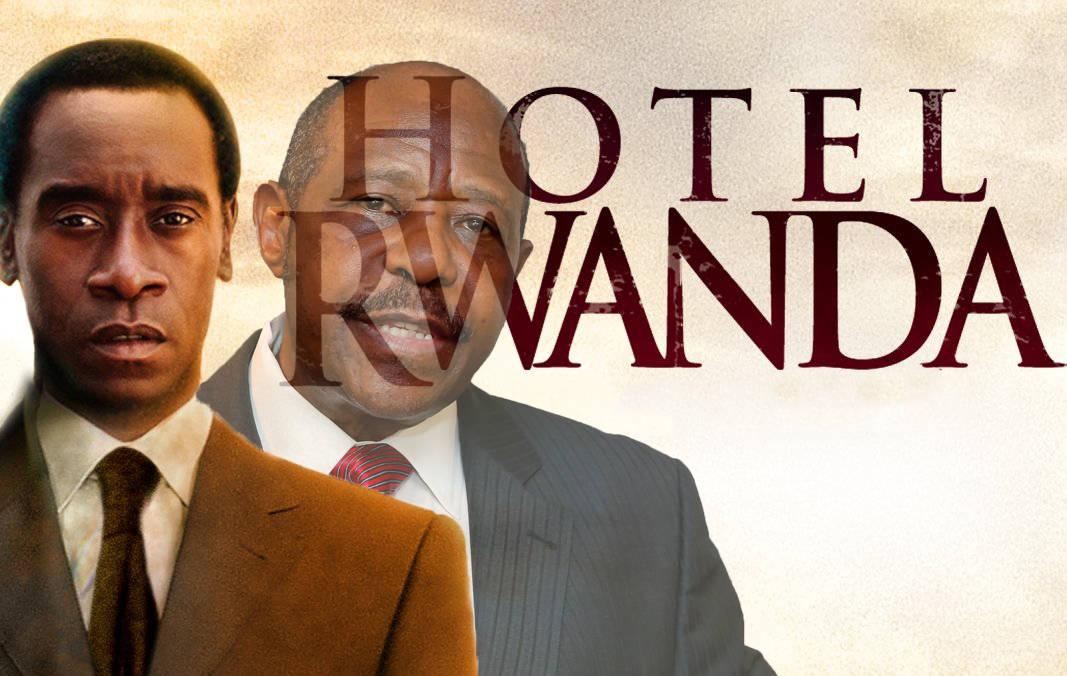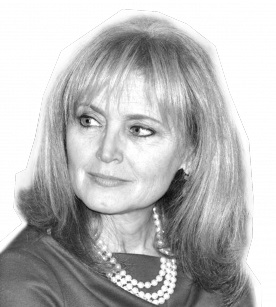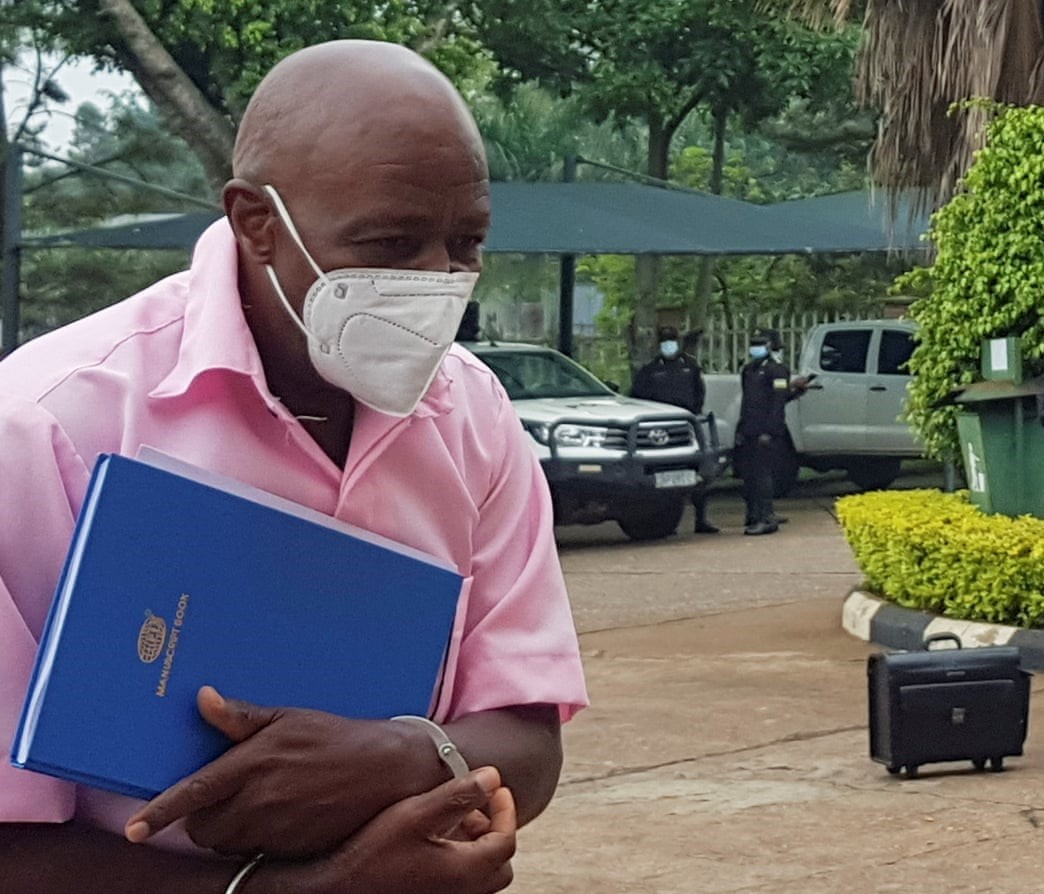International
There's a little Truth in Hotel Rwanda

For
those whose knowledge of the 1994 genocide against the Tutsi largely depends on
the Hollywood film Hotel Rwanda (2005), the idea that the hotel manager Paul
Rusesabagina is anything other than the hero portrayed by Don Cheadle is
unthinkable. An inspirational story, this brave Hutu hotelier had saved the
lives of Tutsi, facing down a militia to protect his guests. It seemed a story
tailor-made made for Hollywood.
Yet
there is little truth in the film. Hotel Rwanda is largely fiction.
Rusesabagina was no hero. It was a group of United Nations Military Observers
who protected the hotel from the raging militia. Rusesabagina was instead a
friend to the extremists of Hutu Power, those military and political officials
who planned and perpetrated the 1994 genocide of the Tutsi. Between April and
July 1994, one million people had been murdered to try to create a 'pure Hutu
state'.
Rusesabagina
was recently sentenced in Rwanda to 25 years in prison, found guilty of
terrorism and murder, of creating the National Liberation Front (FLN), the
armed wing of a collection of Rwandan opposition groups seeking the violent
overthrow of the Rwandan state. He was found guilty of the murderous attacks
that the FLN carried out in Rwanda in 2018 when nine people were killed.
The
trial of Rusesabagina along with 20 operatives of the FLN, all of whom have
pleaded guilty, has lasted eight months. He refused to attend the trial
claiming the entire process flawed, yet he remains a hero, even after the
guilty verdict. There is a consensus in our press that he saved hundreds of
ethnic Tutsi, that the trial is a sham, and his sentence an outrageous
injustice, a way to silence Paul Kagame's most high-profile and ardent critic.
Before
his arrest, Rusesabagina, aged 67 and a celebrity, shared his time between
homes in Brussels and Texas. The film gave him Hollywood stardom. He wrote a
New York Times best-selling memoir with Penguin called, An Ordinary Man, and he
received the highest civilian honour the US could bestow, the US Presidential
Medal of freedom. A foundation was created in his name, the Hotel Rwanda
Rusesabagina Foundation.
The
trial of Rusesabagina and his co-defendants saw no careful consideration of the
evidence by the press and no searches through the thousands of emails and other
documentary evidence presented to the court. Few bothered to visit the location
of the terror attacks to talk with survivors. Rusesabagina retained a powerful
public relations team in the US working overtime to argue that he would not get
a fair trial.
The
notion that Hotel Rwanda is true and Rusesabagina a hero is now joined by
another assumption – that Rusesabagina is innocent of the charges brought
against him in Rwanda. A different picture is presented in the newspaper
coverage in Brussels and Paris. Some of the evidence in the prosecution case
was obtained by Belgian police when they raided Rusesabagina's home in October
2019, seizing telephones, a computer, and documents. Downloading the material,
they found regular amounts of money were being sent to armed FLN operatives who
were conducting raids into Rwanda and terrorising and killing her citizens.
The
French daily, Libération, reported an email in which Rusesabagina had urged the
intensification of these attacks and WhatsApp messages showing the organisation
of arms shipments to the FLN from Brussels. His plans for when he took power in
Rwanda revealed how he would reintroduce the pre-genocide quota system that had
restricted by law the role of Tutsi in all walks of life.
Largely
ignored in our coverage was the testimony of a US academic, Dr Michelle Martin,
who volunteered at the Hotel Rwanda Rusesabagina Foundation in Chicago,
starting in 2009. Martin has a PhD in peace studies and international
development from the University of Bradford, a Master of social sciences in
global policy studies from the University of Bristol, a degree in social work
from the University of Illinois, Chicago, and is currently a professor of
social work at California State University, Fullerton.
Martin
had discovered that the foundation was misleading the US public with purposeful
attempts to promote genocide denial – promoting the same ideas that were part
of the pre-genocide anti-Tutsi racist propaganda. The foundation was registered
as a non-profit charity, yet its activities were inconsistent with this status.
The primary focus appeared to be removing President Paul Kagame from power and
it was fundraising under false pretences. Martin had downloaded hundreds of
emails and texts, and taken screenshots of emails and texts. All this was
presented to the court.
In
my latest book, Intent to Deceive: Denying the Genocide of the Tutsi, I show
how Rusesabagina was never what he seemed. It was a British magistrate who got
the measure of him as long ago as April 2008. Appearing at Westminster
Magistrates' Court before specialist extradition judge, District Judge Anthony
Evans, Rusesabagina was trying to prevent the extradition to Rwanda of four
genocide suspects living in the UK. Their lawyers called him as an expert witness
on whether the suspect would get a fair trial if sent home to Rwanda.
Judge
Evans noted that in his courtroom Rusesabagina had denied the 1994 genocide of
the Tutsi had been organised, and denied it had been a systematic,
government-led programme of extermination. He claimed the killing was due to
anarchy and this, the judge wrote, was contrary to all evidence and facts.
The
judge determined Rusesabagina was an implacable enemy of the Rwanda Government
and was neither independent nor reasonable. He knew nothing about the Rwandan
judiciary and had a background strongly allied to 'the extremist Hutu faction'.
Rusesabagina made wild and exaggerated claims and his performance in court
raised questions about his direct links with the extremist group Hutu Power –
today and in 1994.
The
survivors of the hotel do not credit the manager with their survival.
Rusesabagina was a friend to the architects of genocide. The Force Commander of
the UN Assistance Mission for Rwanda (UNAMIR), Lt-General Roméo Dallaire, condemned
the film Hotel Rwanda as 'pure Hollywood crap'. The hotel was in the Hutu Power
part of the city and designated a UN-protected area where Military Observers
provided a permanent UN presence. The hotel was a focus of Western press
attention with several high-profile people sheltering in its crowded rooms,
including prominent opposition politicians, both Hutu and Tutsi – a journalist,
doctors, lawyers, and a senator – and it was expedient for the génocidaires to
keep these people alive.
It
was Rusesabagina's own unchecked version of events that found its way into the
book by US author Philip Gourevitch: 'We wish to inform you that tomorrow we
will be killed with our families'. Rusesabagina was not alone in changing his
story in the aftermath of genocide or trying to deceive public opinion with
disinformation and fake news. After their defeat by the military forces of the
Rwanda Patriot Front (RPF), in July 1994 under the military command of the
current President Paul Kagame, the génocidaires and their supporters have
continually tried to cover their tracks and minimise, obscure, and diminish
what happened in 1994.
Rusesabagina has been an integral part of this effort, and like all effective deniers, he has become adept at using just enough truth to enable his lies to be believed. The problems are legion when history is repackaged by Hollywood for our entertainment. The truth suffers and gets lost in a fog of lies, deception and denial.




